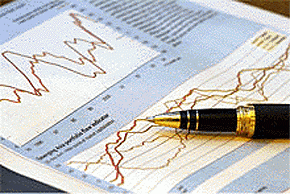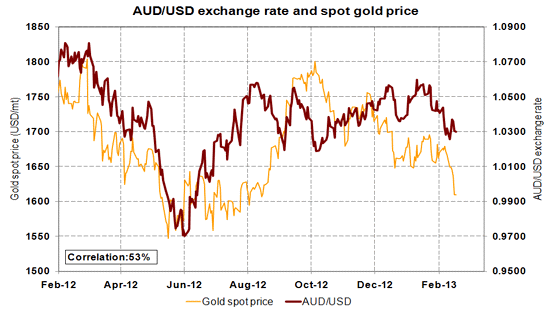
 By Roger J Kerr
By Roger J Kerr
Weaker than expected New Zealand economic data in the form of jobs figures, GDP growth and inflation caused the NZ dollar to dip against the USD through December and January.
A strong start to the year by global sharemarkets following the US fiscal cliff “non-event” quickly pulled the Kiwi dollar upwards from each dip.
As a consequence, the NZD/USD exchange rate was contained in the established 0.8150 to 0.8450 trading range.
However, over recent weeks stronger local economic data has prompted the forex markets to buy the Kiwi and rates over 0.8500 have been recorded.
The buying started from a more upbeat assessment on the outlook for our economy in 2013 from RBNZ Governor Graeme Wheeler than what the doubting moneymarkets and bank economists have been expecting.
Both business and consumer confidence indices have been improving strongly, and further Kiwi dollar gains have come from stronger manufacturing and retail sales data this last week.
Significantly, the Trade Weighted Index (TWI) has hit new post float record highs above 77.00 as major currencies like the UK Pound, Japanese Yen and Australian dollar have all weakened for their own reasons, mainly looser monetary policy and poor economic data.
The NZD is up on all the cross-rates as global investors rate our economic performance and outlook as superior to other economies and currencies.
Will it continue?
While the Kiwi dollar has convincingly out-performed the Aussie over recent weeks, the future direction of the NZD/USD rate over coming weeks and months is still expected to be determined by what the AUD does against the USD.
Market expectations of a further interest rate cut by the RBA as Australian economic numbers print on the weak side is preventing the AUD from appreciating above $1.0350 against the USD. The Aussie dollar has been the favoured safe haven for global funds over the last four years since the GFC, that currency status is now in question as market risk reduces in Europe, Australian interest rates are much lower, the mining boom is plateauxing out and most economic figures are poor (largely as a result of the strong AUD).
The international love affair with the AUD is over and for the first time in years the currency appears vulnerable to portfolio and real flow disinvestment.
It continues to be very instructive that the AUD has failed to appreciate on stronger Chinese economic data over recent weeks.
The Aussie dollar has a reasonable positive correlation with gold and copper prices. Currently, both precious and base metal prices are weakening in international commodity markets. Gold has fallen below US$1,600 per ounce as inflation worries are low, banks are in better shape and financial/investment market risk factors reduce. Investment and market guru George Soros is reducing his long gold positions. The AUD/USD is expected to follow the gold price lower and this in turn should pull the NZD/USD exchange rate back to the 0.8200 area from above 0.8400.

A number of local banks are forecasting the NZD/USD rate to make further gains to 0.8600 and 0.8700 without really citing the reasons for the additional buying apart from the positive economic outlook relative to others.
Portfolio investment flows into the NZ sharemarket from foreign funds has been one factor behind the recent NZD strength, however whether these investors are still aggressive buyers of the NZ currency and NZ shares at the now elevated levels is doubtful.
Some market analysts have been anticipating that RBNZ Governor Wheeler will up his jawboning of the currency downwards as the RBNZ realise the damage the high dollar value is doing to the productive export sector.
Foreign exchange market intervention by the RBNZ is not going to happen as the pre-requisites to do so are not meet, however a more assertive statement from the Governor on his preference to use “macro-prudential” policy measures on any housing/credit market heat instead of raising interest rates may scare off Kiwi dollar speculators who think our interest rates are about to be lifted.
The USD itself is expected to make further gains against the Euro as the markets realise that while financial and investment market risk levels may have abated in Europe, the ECB is still likely to cut Euro interest rates to help get their economies out of deep recession. A weaker AUD and weaker EUR against the USD over coming weeks stand to reverse the upward momentum the Kiwi dollar currently enjoys.
Global financial and investment markets will be firmly focussed on Italian political outcomes this week, with market volatility likely to increase (NZD negative) should the Italian voters back political leaders/parties that want to wind-back their fiscal austerity measures.
------------------------------------------------------------------------------------------------------------------------------
To subscribe to our daily Currency Rate Sheet email, enter your email address here.
------------------------------------------------------------------------------------------------------------------------------
Roger J Kerr is a partner at PwC. He specialises in fixed interest securities and is a commentator on economics and markets. More commentary and useful information on fixed interest investing can be found at rogeradvice.com
No chart with that title exists.
2 Comments
Why will the NZD suddenly couple to Australia? The NZD has gone up 4 cents against the Oz in the last 12 weeks, and doesn't look like slowing. We have a Prime Minister talking the currency up as high as it can go. Am sure if the NZD gets back to A90c he'll be explaining to those people still in work how fantastic it is because they can have great shopping breaks to Sydders, and go to the beach on the Gold Coast for next to nothing.
We have a Reserve Bank which apparently has a Sergeant Schultz approach to life. The Aussies meanwhile have a much better record of doing exactly what is in their interests; which means what the RBA says and does could easily be two different things.
Time will tell.
Roger , I hope you are right , many businesses cannot compete with the Aussie$ over 80cents, without cost cutting , staff redundancy or casualisation of labour .
John Key clearly does not understand these problems when he sits in Cabinet meetings sipping tea and eating cake
Margins are getting wiped out at the current exchange rate , so its begs the question as to why we stay in business.
Adding to our woes are Transport costs ( Seafreight to Australia ) , high local wages , high input costs , and high commercial rents ........ just some of the competitive disadavantages we're facing .

We welcome your comments below. If you are not already registered, please register to comment
Remember we welcome robust, respectful and insightful debate. We don't welcome abusive or defamatory comments and will de-register those repeatedly making such comments. Our current comment policy is here.